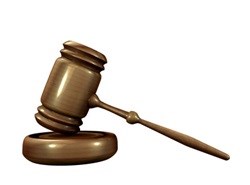
Top stories






More news














The Constitutional 17th Amendment Act of 2012 has amended, inter alia, Section 167 of the Constitution as follows:
"(3) the constitutional court -
(a) Is the highest court of the republic; and
(b) May decide -
(i) constitutional matters; and
(ii) Any other matter, if the constitutional court grants leave to appeal on the grounds that the matter raises an arguable point of law of general public importance which ought to be considered by that court; And
(c) Makes the final decision whether a matter is within its jurisdiction. ..." (Underlining denotes new insertions.)
It is clear that the constitutional court is no longer restricted to only decide matters of a constitutional nature. It is however, not as clear as to whether this amendment will actually promote or facilitate easier access to that court. The Constitutional Court has now been appointed as the highest court in SA in all matters (where previously it only held this title in relation to constitutional matters).
In order to understand the impact of this amendment, one has to understand how the Constitutional Court determined its
jurisdiction to hear a matter, in the past. Traditionally, the court applied a strict rule of constitutional relevance, refusing to entertain a matter which did not raise a constitutional issue. Over time this has changed, with the court hearing more and more matters which are not, strictly speaking, "constitutional disputes".
The court has become much more willing to accept that, as all law is subject to the constitution, just about every dispute arriving at the constitutional court, will contain a certain constitutional element.
Against this background, the Constitution 17th Amendment Act of 2012 comes as no real surprise, as the amendment seeks to merely formalise what has developed as a trend in the constitutional court. Whilst it is clear that each of the High Court, the Supreme Court of Appeal and the Constitutional Court have the inherent jurisdiction to rule on constitutional matters, it is less clear as to when it is appropriate for a party to appeal directly to the constitutional court in non-constitutional matters. The only hurdle which exists for a potential litigant to be heard in the Constitutional Court is that leave to appeal (to the constitutional court) must be granted on the grounds that the matter raises an "arguable point of law of general public importance which ought to be considered by that court".
Only time will tell what the constitutional court deems an "arguable point of law of general public importance" to be, but
it is unlikely that the constitution will not be used as a guide in making this determination. As a result, the practical effect of the amendment is likely to have a lesser effect on a party's ability to approach the constitutional court than was originally understood, and is unlikely to open the proverbial floodgates to "non-constitutional" litigation in the Constitutional Court.
